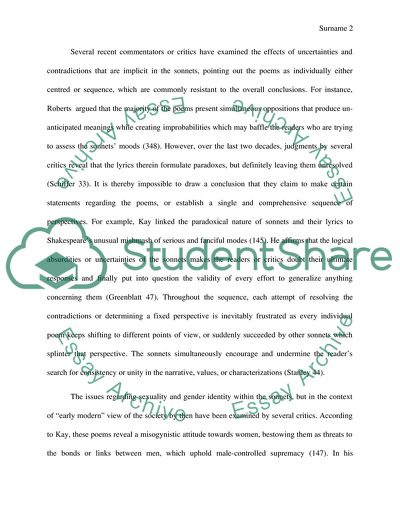Cite this document
(“Narcissism and Misogyny in Shakespeare's Sonnets Term Paper”, n.d.)
Retrieved de https://studentshare.org/literature/1676876-narcissism-and-misogyny-in-shakespeares-sonnets
Retrieved de https://studentshare.org/literature/1676876-narcissism-and-misogyny-in-shakespeares-sonnets
(Narcissism and Misogyny in Shakespeare'S Sonnets Term Paper)
https://studentshare.org/literature/1676876-narcissism-and-misogyny-in-shakespeares-sonnets.
https://studentshare.org/literature/1676876-narcissism-and-misogyny-in-shakespeares-sonnets.
“Narcissism and Misogyny in Shakespeare'S Sonnets Term Paper”, n.d. https://studentshare.org/literature/1676876-narcissism-and-misogyny-in-shakespeares-sonnets.


